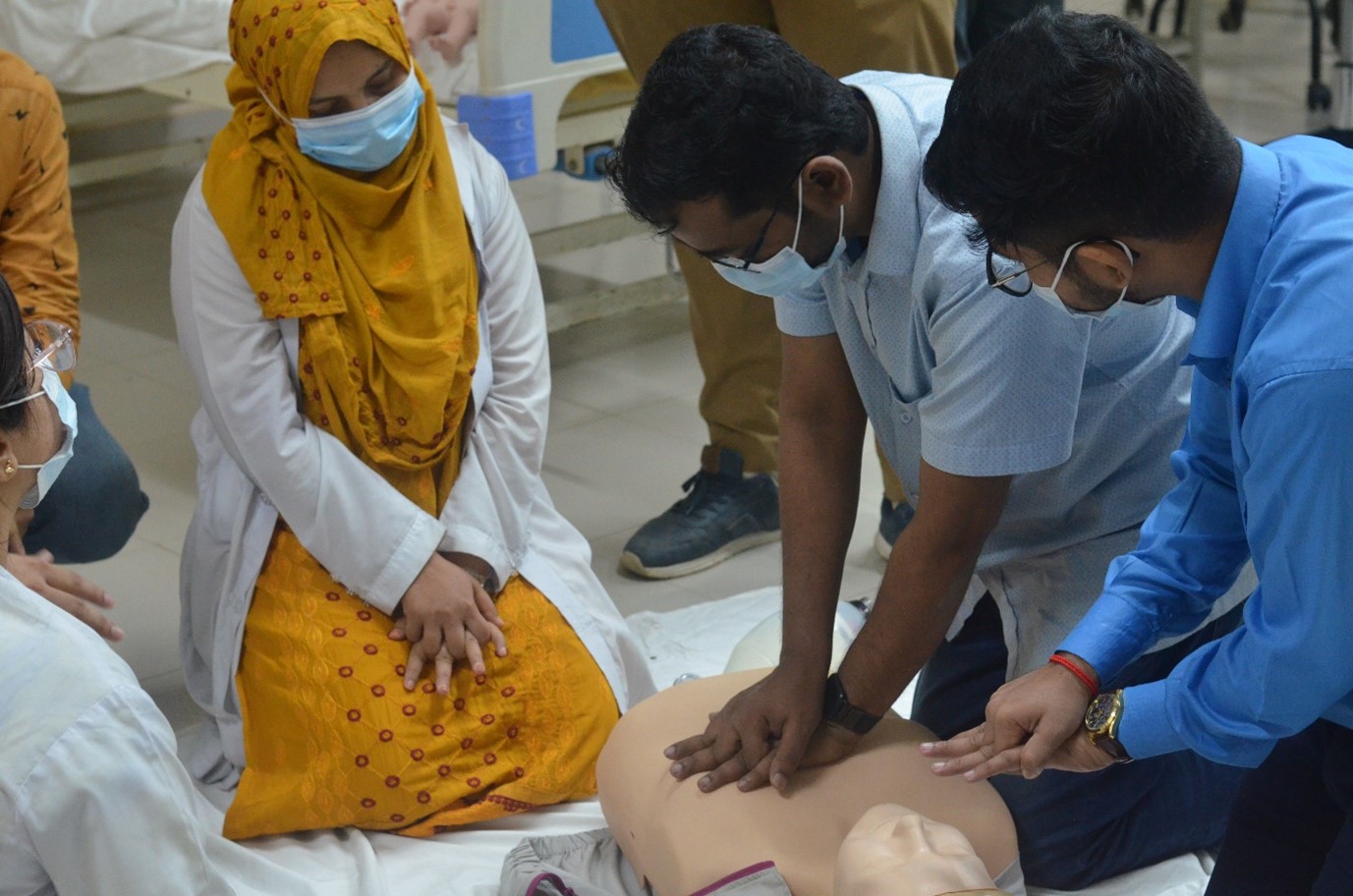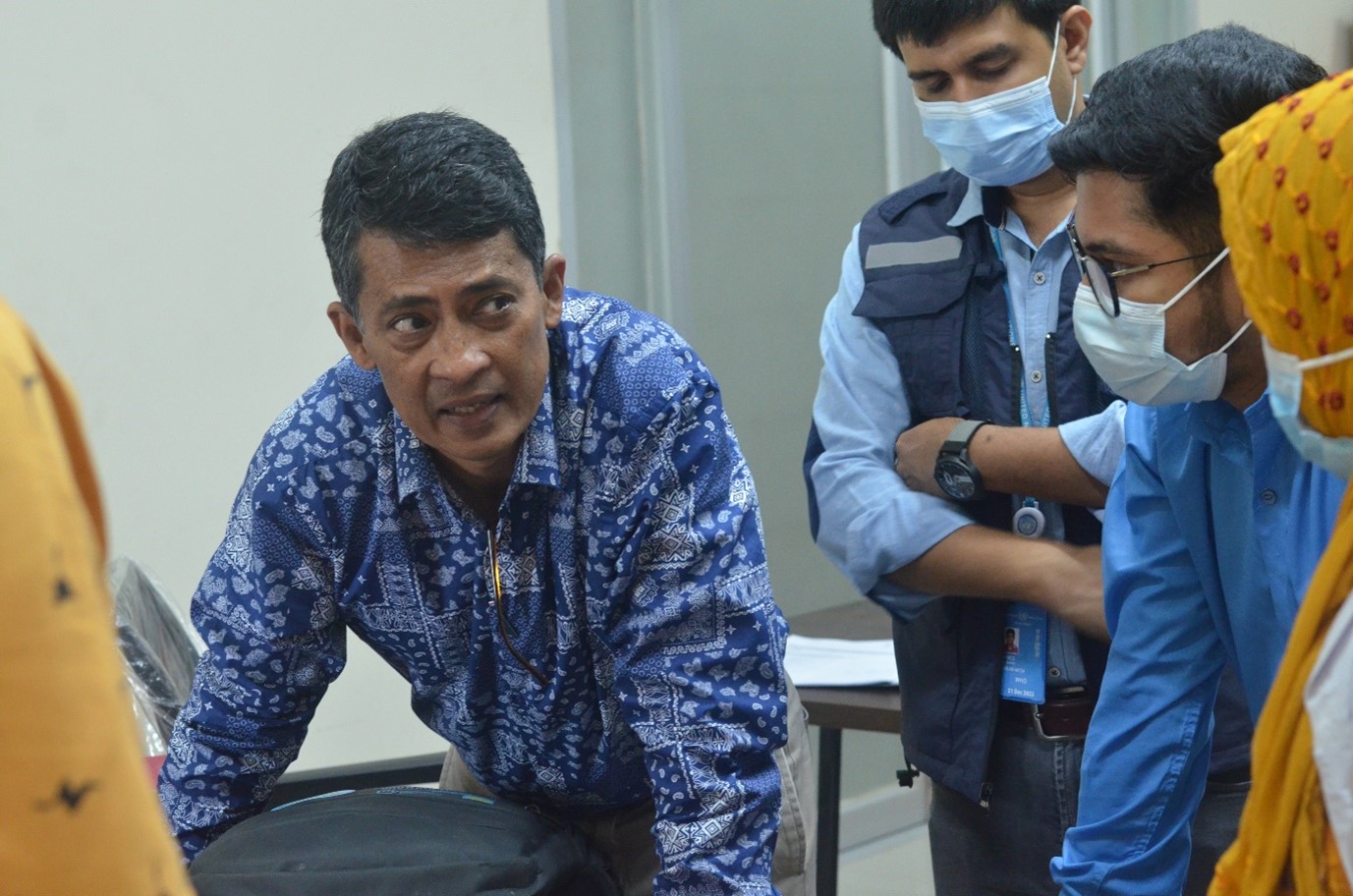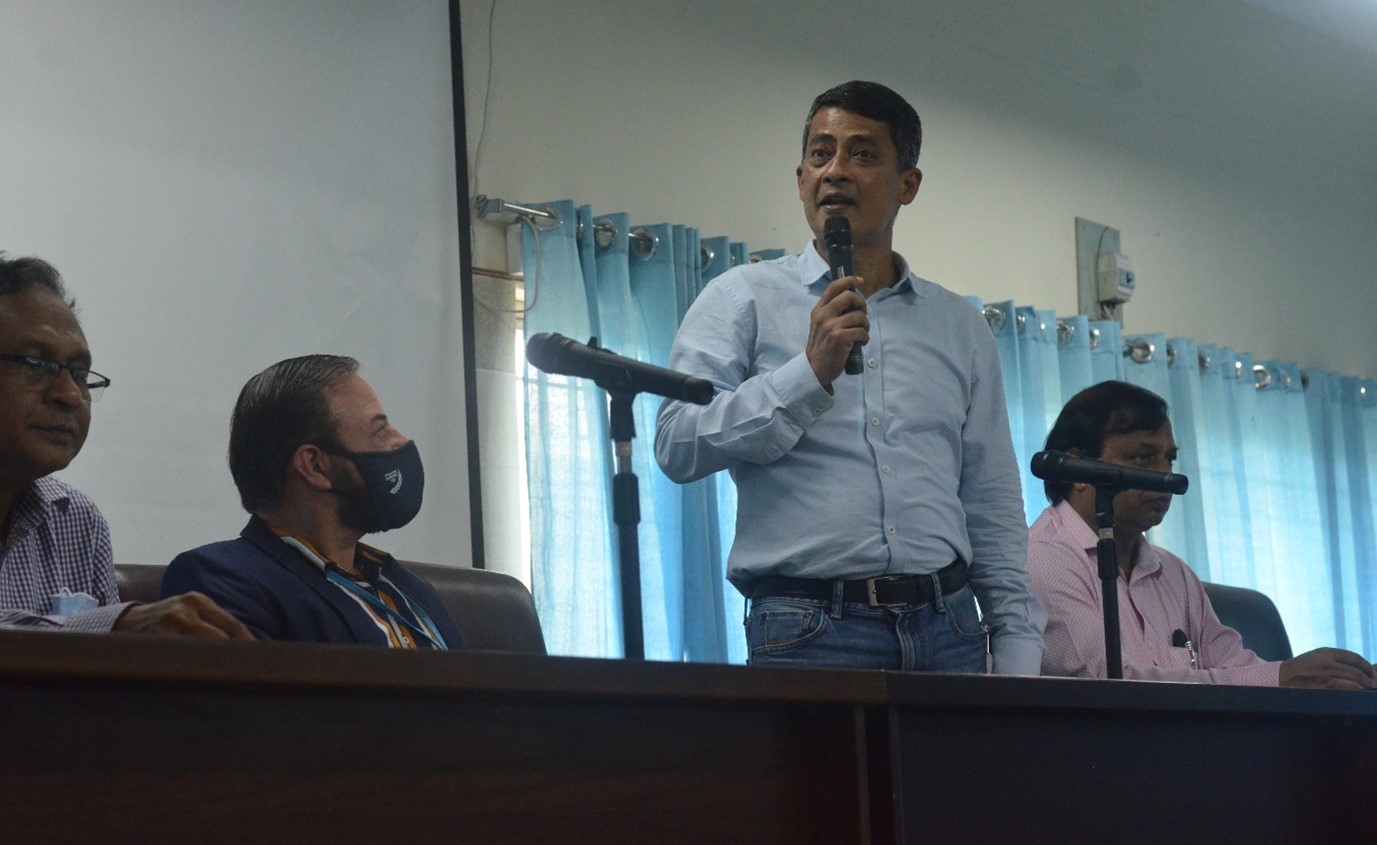Humanitarian emergencies like the Rohingya displacement crisis make for unusual medical environments.
Health workers sometimes have to provide on-the-spot responses to various situations to save lives. They may have to work without the support they’re used to receiving from a routine healthcare setting.
In such cases, individual skill can be a matter of life and death.
The region’s new Multidisciplinary Skills Lab ensures that those skills are the best they can be. Working in collaboration with WHO, the Ministry of Health and Family Welfare, the Government of Bangladesh inaugurated the new skills lab this week at the Cox's Bazar Medical College. This type of facility is new to Bangladesh, offering a unique vehicle for education and collaboration that will enhance sector responses to various health challenges.
The lab provides training to health workers from a range of disciplines and levels, including nurses, doctors and medical specialists. Initially conceived as an obstetric skills lab designed to respond to complications such as post-partum haemorrhaging (PPH) amongst the displaced Rohingya population. The lab will roll out training on PPH, complicated labour, and Basic Emergency Care for health workers in a concerted effort to reduce maternal mortality. Specialised training equipment sourced by the International Committee of the Red Cross (ICRC) and UNFPA enables trainees to explore life-saving obstetric techniques.
However, to enhance every aspect of primary care, this skill lab can play a vital role—especially as a point of contact for displaced persons who require urgent medical attention. It’s a critical tool for improving the quality of responses in emergencies.
Dr Rajan Bikram Rayamajhi, Public Health Officer at the WHO Emergency Sub-Office in Cox’s Bazar, explains why the facility is crucial to health sector development.
“[It’s] is an institute designed to be the nerve centre of capacity building among healthcare workers working in the camps, for partners, government health care workers and medical students. Several cohorts of health workers work in Cox’s Bazar, so we tackle a broad range of life-saving emergency medical conditions requiring hands – on clinical skills and medical knowledge.”
Upon its inauguration this Monday, 30 June, the skills lab conducted training on Basic Life Support, enabling participants to practice in an outcome-free environment.
“For a chance to practice cardiopulmonary resuscitation,” says Dr Rajan, “you would need a person s on the verge of death—a situation we want to avoid. And it is only possible in the emergency setting. That’s why the skills lab is essential to refresh the skills of it and the service providers.”

CPR is a skill that medical workers hope never to use. However, the skills lab makes sure their skills stay sharp. Photo credit: WHO/James Carmichael
WHO seeks support from health-sector partners to expand the scope and capacities of the skills lab, as well as the range of training offers. The hope is that the facility will become a nexus for information sharing between medical practitioners, subject-matter experts, and national and international health organisations.
Dr Shamsuz Zaman M.D., Associate Professor in Paediatrics at Cox’s Bazar Medical College and Hospital, hopes to see the training capabilities of the lab enhanced in the near future.
“We want to expand the lab to every aspect of medical science: surgery, medicine, emergency care, and more. Last time, we started our first session on Basic Life Support. We want to expand it for every department—ENT, surgery—if we get all the facilities, we can make it a truly multi-disciplinary skills lab.”

Dr Shamsuz Zaman M.D. (left) coaches students in the finer points of obstetric care. Photo credit: WHO/James Carmichael
For Dr Shamsuz, the support of WHO in Cox’s Bazar opens the door to opportunities on the national level.
“UN organisations offer care in Cox’s Bazar. Without WHO, we could not have conceived and initiated it. The Government of Bangladesh is planning to run a Multidisciplinary Skills Lab in all medical colleges throughout Bangladesh.”
Dr Zaman attended the inauguration on Monday alongside senior medical personnel, including Dr Jorge Martinez, Head of the WHO Sub Office in Cox’s Bazar. Dr Martinez testifies as to why the event is such a meaningful step.
“The lab is a pertinent reflection of everything WHO seeks to achieve here in Bangladesh. It’s a centre of inter-agency cooperation, thought leadership and patient-centric care. It responds to the needs of the displaced Rohingya population while enhancing national capacities for long-term healthcare gains. It’s a product of national and international cooperation and innovation. We look forward to seeing it flourish.”

Dr Shamsuz Zaman M.D. speaks at the inauguration of the Multidisciplinary Skills Lab at Cox’s Bazar Medical College alongside Dr Jorge Martinez (centre left). Photo credit: WHO/James Carmichael.
WHO would like to thank key partners for their support in opening the Multidisciplinary Skills Lab. If you’re a health worker in Cox’s Bazar and are interested in using the skill lab’s training facilities, please contact Cox’s Bazar Medical College directly.
For more information on the issues covered in this article, please contact jcarmichael@who.int.
